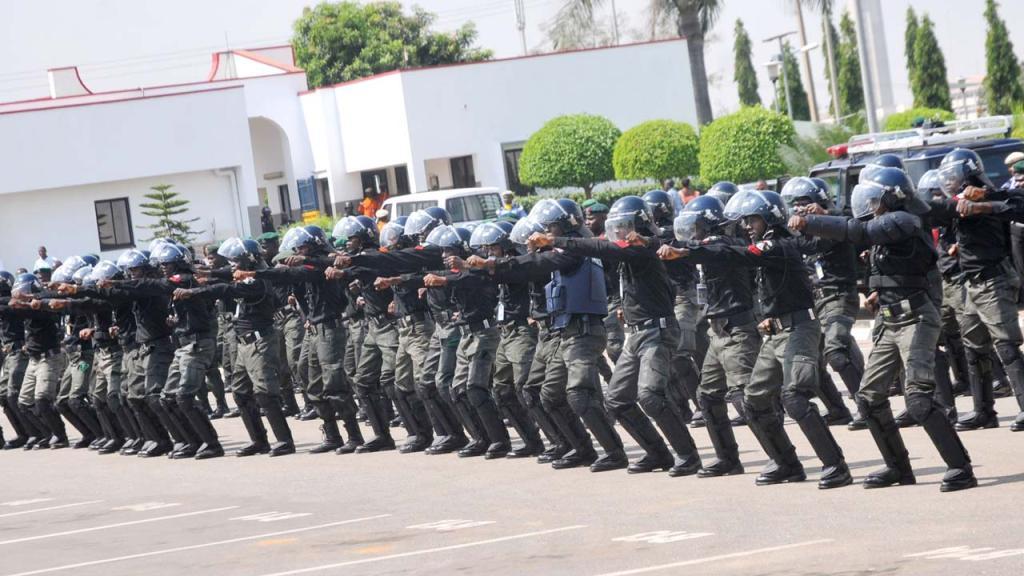A 13-man Ministerial Project Coordination Committee has been set up by the Ministry of Police Affairs to recruit policemen and implement new policies to end security challenges in the country.
This follows approval the Presidency granted the ministry for the recruitment of 400,000 policemen for the Nigeria Police Force to address its manpower shortage.
This is against the backdrop of the ongoing legal battle between the Police Service Commission (PSC) and the Nigerian Police Force (NPF) over the recruitment of police personnel.
Already, Mohammed Dingyadi, the police affairs minister, has inaugurated the committee whose members are drawn from the ministry and the police force.
A statement by Head of Press and Public Relations Unit of the ministry on Sunday, Odutayo Oluseyi, said the committee would also work out appropriate programmes and projects to accomplish the assigned priorities and deliverables.
During the inauguration of the committee in Abuja, the minister noted that providing security for all citizens was among the nine main priority areas of the government.
Dingyadi said, “It is instructive to point out these government priorities have been developed in line with the vision of this administration which is targeted towards building a prosperous economy, eradicating corruption and providing security for all.”
The Permanent Secretary in the ministry, Nnamdi Mbaeri stated that during the Presidential Retreat, a committee was constituted under the Chairmanship of the Vice President to review the performance of the government during the last four years and also articulate a programme of action which would provide strategic direction for the Administration’s next level agenda, 2019-2023.
He added that the committee developed the document entitled “Delivering on government’s priorities 2019-2023″ that featured nine overarching government priorities, including security.
Mbaeri said: “The police affairs ministry was assigned specific priorities and deliverables including full implementation of the Community Policing Policy, the recruitment of additional 400,000 policemen across the country, the establishment of a Federal Public-Private Security Trust Fund amongst others.”
According to the permanent secretary, it was in the bid to effectively and adequately implement these priorities and deliverables for the benefit of Nigerians that the ministry considered it imperative to constitute this Ministerial Project Coordination Committee which was tasked with carrying out specified duties.
The Chairman of the committee, and Director of Police Reforms Department in the ministry, Mohammed Yahaya, pledged on behalf of the committee to carry out their duties efficiently and effectively, saying it was a rare opportunity that had been given to them to participate in the architectural shaping of the security of the country.
Meanwhile, a Federal High Court in Abuja has dismissed a suit filed by the Police Service Commission (PSC) challenging the powers of the Inspector-General of Police (IGP) to recruit police constables.
The PSC sued the police over the recruitment of 10,000 constables as approved by President Muhammadu Buhari. The IGP, the Nigerian Police Force (NPF) and the Attorney-General of the Federation (AGF) were listed as defendants in the case.
Delivering judgment in the suit on Monday, the presiding judge, Justice Inyang Ekwo, held that the suit lacked merit. The judge noted that section 71 of the Nigeria Police Service Regulations gave the power to enlist constables to the Police Council under the control of the IGP and not the PSC.
He held that the PSC by its enabling law could only appoint constables after the enlistment exercise carried out by the NPF. Justice Ekwo added that the Civil Service Rules cited by the PSC in defining the meaning of “appointment” to include “recruitment” did not apply to the NPF, not being a civil service.
The judge further held that contrary to the allegation by the PSC that the NPF and the IGP were attempting to usurp its powers to recruit the constables, it was the PSC that was attempting to usurp the powers of the NPF and IGP.

